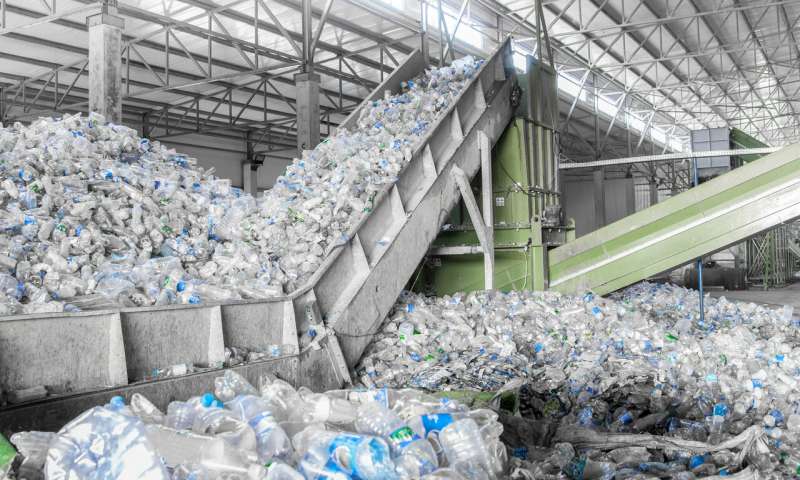
Plastic is light and strong, and has excellent sealing and heat resistance. It is transparent and can be colored freely. It is not only excellent as a material, but also a material that can be recycled after use. However, not all plastics are recovered by recycling, and not all plastics can be recovered. How are plastics used in products that can be purchased in general supermarkets being handled in the United States?
First, wrap film cannot be recycled. Wrap film, which is used when packing vegetables, meat, cheese, etc., accounts for a significant portion of the garbage, but it is not possible to dispose of the recycling facility due to the possibility that the thin film will be wound around the machine. The same goes for small plastics. Small plastics are usually small, less than 7.6cm, such as bread bag clips, medicine packaging, and disposable spoons, which also squeeze between recycling devices and cause failure. In addition, tampon applicators, a feminine sanitary product, are also classified as small plastics and cannot be recycled.
Plastic packages are also non-recyclable. Pocket-shaped plastic packages cannot be recycled because they stick to the recycling facility conveyor. The sensing chip bag is lined with aluminum and cannot be recycled as well as plastic. The same goes for the solid container of deodorant. They are made of different plastics, so they can’t be recycled. In the United States, there are companies that collect and recycle containers.
PET bottles can be recycled. PET bottles are packages made on the premise of recycling. However, since labels cannot be recycled, they must be removed prior to recovery. In addition, plastic bottles such as detergents, shampoos, liquid soaps, etc. with the area below the bottom of the lid are basically recyclable. However, a container with a spray nozzle like a bathtub detergent may contain metal in the nozzle head, so it is necessary to separate the nozzle.
Nested plastic containers are used in supermarkets to hold side dishes. These plastic containers are made of the same type of plastic as a PET bottle, but they are not necessarily recyclable because of their differences. It is said that the availability of recycling depends on the local government. Likewise, yogurt and butter containers are difficult to recycle because many plastics are used. However, there are companies in the United States that have businesses that recycle yogurt and butter containers.
Styro products are basically non-recyclable. Most of the styrofoam containers are made of air. Special machinery is needed to remove the air and make it easy to recycle. Numerous cities in the United States have banned foamed plastics, including styrofoam, and this year, Maine and Maryland also passed laws banning synthetic resins entirely.
Plastic bags and packaging plastics are basically non-recyclable. Because recycling facility machines can break down. However, it is said that large grocery chains such as Wal-Mart are making efforts to retrieve plastic bags.
Next, the label HOW2RECYCLE, which represents recycling led by Green Blue, an environmental NGO in the United States, can be recycled. Supermarkets and hypermarkets also use this label as their own brand, and it is also a common label in the United States.
Plastics sent to recycling facilities are separated by humans and machines. The size of recycling facilities varies according to local governments. There are recycling facilities operated by large corporations and small-scale recycling facilities at the level of individual businesses. There are no established guidelines as how it is recycled depends on the facility.
Recyclable plastics are sold to companies that manufacture plastic containers from compressed waste plastics or to companies that produce clothing and furniture. Of course, there are times when it is cheaper to use new plastic than to use recycled plastic.
One of the problems with plastic containers and packaging is that they are not designed to be recycled. The US recycling facility is said to be working with manufacturers to design recyclable packages.
There is also the problem of not properly recycling recycled products. It is a plastic suitable for recycling PET bottles, but a third is not recycled and is discarded. Of course, on the contrary, recycling anything without discrimination can also be a problem. Nevertheless, although recycling cannot solve all of the waste problems, it is necessary to think of it as one of the important steps to solve it. Related information can be found here .


















Add comment